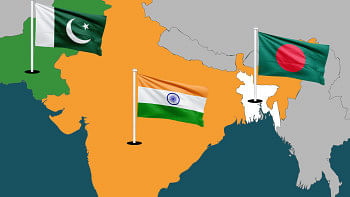Law reforms needed for quick settlement

The appellate tribunal should be designed like the administrative appellate tribunal to put an end to the harassment faced by workers when it comes to settlement of disputes, said a lawmaker yesterday.
When a verdict goes in favour of workers at the labour court, many factory owners appeal against it with the tribunal.
It takes a lot of time and money for workers to have the appeal settled, although in most cases, the disputed amount varies between Tk 60,000 and Tk 1 lakh, said Md Mojibul Haque, chairman of the parliamentary standing committee on the labour and employment ministry.
As a result, the verdict is delayed and workers lose interest in fighting the case, he said.
"If the labour appellate tribunal acts like the administrative tribunal, workers will get the judgement within a stipulated time, and it will be helpful for them."
The former state minister was speaking at a virtual dialogue on "Building the RMG Sector in Adherence with the United Nations Guiding Principles (UNGPs)", organised by the Centre for Policy Dialogue (CPD) in partnership with the Christian Aid in Bangladesh.
The lawmaker said there were many loopholes in the labour law.
"The ministry will take initiative to amend the labour law again. I have a plan to suggest the ministry incorporate the amendment of the labour appellate tribunal," said the former state minister for labour and employment.
Haque called for setting up more dormitories for garment workers by taking loans from the central bank at 2 per cent interest rate.
Md Ehsan-E-Elahi, labour secretary, said Bangladesh was going to ratify the 138 Convention of the International Labour Organisation (ILO) to determine the minimum age of workers.
He said the ministry could disburse only Tk 7 crore to Tk 8 crore from the fund of the European Union and Germany, and the rest of the amount was lying idle as the list of the affected workers could not be found.
Last year, the EU and Germany gave 113 million euro to Bangladesh to disburse among the workers of the export-oriented garment and leather sectors hit hard by the coronavirus pandemic.
The ministry has a target to disburse the money among 72,000 workers with Tk 3,000 each for three months.
"We are going through a very tough time as we are struggling to revive our business from the fallouts of Covid-19," said Faruque Hassan, president of the Bangladesh Garment Manufacturers and Exporters Association.
Mohammad Hatem, first vice-president of the Bangladesh Knitwear Manufacturers and Exporters Association, said international buyers always spoke about ethics but they had not maintained the ethical standards during the pandemic and indiscriminately cancelled or suspended orders and demanded unusual deferred payment.
Vidiya Amrit Khan, a director of the BGMEA, called for carrying out research beyond garment industries as they also needed to be compliant.
Syed Sultan Uddin Ahmmed, a specialist for worker activities at the ILO office in New Delhi, said in most cases, the labour disputes in the industrial sector were settled verbally although the laws were there.
At the event, the findings of a study on the "State of the UNGPs in the RMG sector of Bangladesh" were shared.
The study was conducted in 600 garment factories in Dhaka, Narayanganj, Gazipur and Chattogram to know the level of awareness about the UNGPs on business and human rights. Some 606 workers from 200 factories were covered in the study.
According to the study paper, the garment sector is way behind in institutionalising UNGPs.
The concept of UNGPs is not fully clear to the garment manufacturers, although they understand human and labour rights. Despite diverge levels of human and labour rights practices at the factory level, those marginally adhere to the UNGPs.
"Overall, the practice of UNGPs in the RMG sector is still at the early stage," it said.
The report said the process of institutionalisation of UNGPs had yet to be started in the garment industry. A binding treaty in case of enforcement of UNGPs would facilitate the process. The first step will be to strengthen the UNGP reporting system of factories.
While presenting the key findings, Khondaker Golam Moazzem, research director of the CPD, said about 74 per cent workers recalled they had seen posters inside or outside the factory that contained messages on human rights.
Ninety-one per cent of workers said the poster contained messages related to child labour. Statements related to workplace and sexual harassment, living wage and maternity benefit were seen by more than 50 per cent of workers.
The least addressed public disclosure issues are layoff and retrenchments and collective bargaining.
About 8.7 per cent of workers saw messages related to layoff and retrenchment and 16 per cent on collective bargain, Moazzem said.
"Such a guideline will be highly beneficial for garment factories to understand the issues, take measures and improve practices."
Fahmida Khatun, executive director of the CPD, said although the garment sector had shown impressive growth in the post-Rana Plaza period, there were a number of social compliance issues that required attention.
Mustafizur Rahman, a distinguished fellow of the CPD, moderated the discussion. Pankaj Kumar, country director of the Christian Aid, also spoke.

 For all latest news, follow The Daily Star's Google News channel.
For all latest news, follow The Daily Star's Google News channel. 



Comments